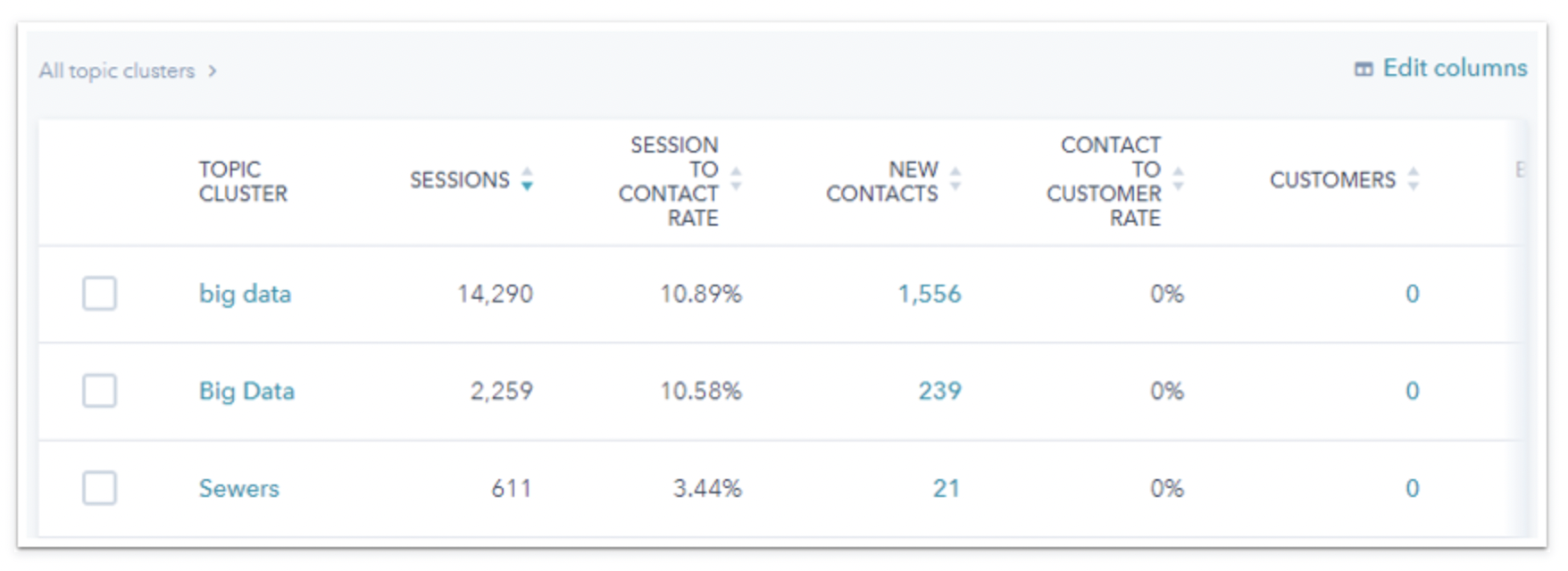For most B2B companies today, their website is the single most important digital marketing asset which, if measured, monitored and integrated with key customer facing functions, has a direct correlation with sales and customer experience. The interplay between website and CRM is crucial for Customer Experience Management.
I would say a website without a CRM is a lame duck. Here are some of my reasons for why.
Think of your customer's first point of contact. Even in B2B, it’s often online, whether via Google Search, referral or an Ad. As sales reps or marketers, that first glimpsing moment is our chance to start gathering data and storing information in order to ensure we provide the most potential (and differentiating) value going forwards.
A website with no connection to a proper customer database is one of the biggest reasons many companies fail to develop their customer engagements early on. They spend a lot of money on design, making sure the sites are optimised for first-time visitors and search engines and respond to browsers etc. Brand-wise and technically everything seems ok - and yet it's far from optimal.
"Digital customer experience, or digital CX, refers to the total online interactions a customer has with your brand. Most interactions take place on your website or app. But channels like social media, email, and live chat also play a role in how customers connect with your brand online."
https://blog.hubspot.com/service/digital-customer-experience
Where is the data? How are we using the information? Website visits, form submissions, social and other source information provide critical, actionable info that can be utilised to drive sales and deliver value add. If you know your current customer is looking into upgrading to a new product and they visit your product pages and test your pricing calculator, will your sales rep be able to react accordingly? Can your marketing team provide them with a popup providing more in-depth materials or perhaps send case studies via email? Or specially targeted, CRM-directed content based on the visitor’s country, language, device type or lifecycle stage?
They absolutely should and the secret sauce here is their CRM. A CRM system helps companies stay connected to customers, streamline processes, and improve profitability - sounds like a perfect match with your CMS!
CRM Used To Be Just For Sales
One of the first questions I ask our C-Level Managers is: Who uses your CRM?
Usually, the answer is "Well, sales of course." Therein lies the challenge - in order to really manage a customer experience a typical B2B company will need to align all customer facing teams both in terms of goals and processes - both data and technology. A single source of truth, a CRM, acts as the foundation for alignment across the customer interface.
That's why an excellent CRM is, in fact, the easy to use, shared working space of sales, marketing and customer service. Our ability to live alongside our prospects and clients throughout the entirety of their lifecycle is competitive necessity.
You can maybe see where I'm going with this, but if marketing needs a CRM, and if their website is their single most important platform, not integrating them would seem pretty absurd.
5 Questions to help illustrate if your website supports both Customer Experience and drives sales:
- Does your sales rep receive an alert when a potential key account visits your website? Let's say John is tasked with selling to prospect companies with revenues between 10M-100M€, operating in your region or city, and in industries like Healthcare and Tech. He needs to know when such companies are on the prowl to do his thing.
- Does your sales team receive an alert when a Sales Qualified Leads visit your Product or Services pages? Let's say Mary has ownership of X leads and is currently contacting them to set up meetings. Some would rather just first get more information, so she provides them with links to website cases etc. She needs to know if these leads take the bait, i.e. visit the website and, more specifically, spend time on the product or pricing pages. Such actions are great points of discussion in later calls and indicate real interest.
- Does a generic chatbot popup and distract visitors once they enter your website? That's not nice. using your CRM data, you can target a specific type of bot that can help add value to the visitor in this first contact moment. A quick qualification process can then follow and the visitor will be connected with Customer Service or Sales teams as required.
- Do your customers see the same Content Offers that your Prospects do? Patrick is an Account Manager with upsell / cross-sell goals - instead of providing bottom-of-the-funnel gated content to current customers on the company website, he would rather they see an open content CTA that redirects to relevant upsell content. The website content now also supports customer context, i.e. buyer's journey.
- Can your marketing team report on how many website generated leads have lead to offers and/or customers (which helps calculate ROI of marketing by the way)? So a more classic question to wrap things up. CEO Donna knows that the company website looks great, but even better for business - she wants to know the percentage of leads generated by marketing that have lead to offers - and what the average per lead value is given the value of the deals in question. What is the impact on Customer Experience? Multifold. For example, content that works pulls in the right buyer personas, generates the right leads, that lead to the right offers - giving us a strong understanding of which kinds of content your customers need and in which stage of their lifecycle (first touchpoint, sales engagement etc.).

Image above: Example of report tracking new leads generated via website with Contact to Customer ratio (HubSpot)
Integrate Your Website With A CRM Now
Summing up, the ability for your company website to respond to user context and cater to specific needs and preferences is more important than ever. All the relevant data we can gain from online needs to be retrieved, stored and managed in a way that's actionable and immediately available to marketing, sales and services.
Integrating your website with a CRM is critical and it's time to get on the bandwagon.
What Needs to Happen?
Maybe your website is fine, and it's working together with your CRM. If not, we can show you what needs to be done to get things fixed, improved or redone altogether. Give us your website domain, set aside 30 minutes to hear the results of our audit - we'll give some opinions, but mostly a lot of facts (we'll do a technical audit).
All free.
Check out our free Website audit for potential new HubSpot CMS users here.

